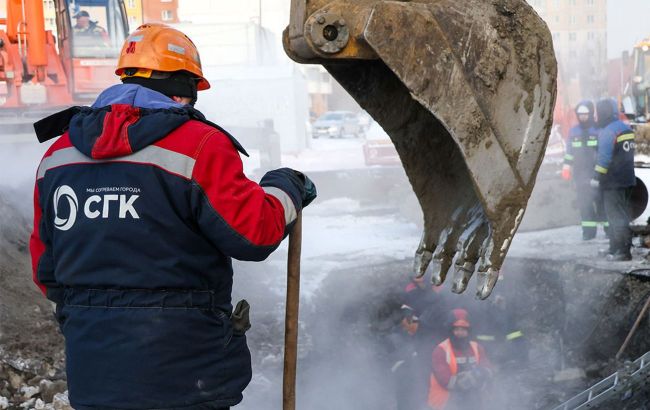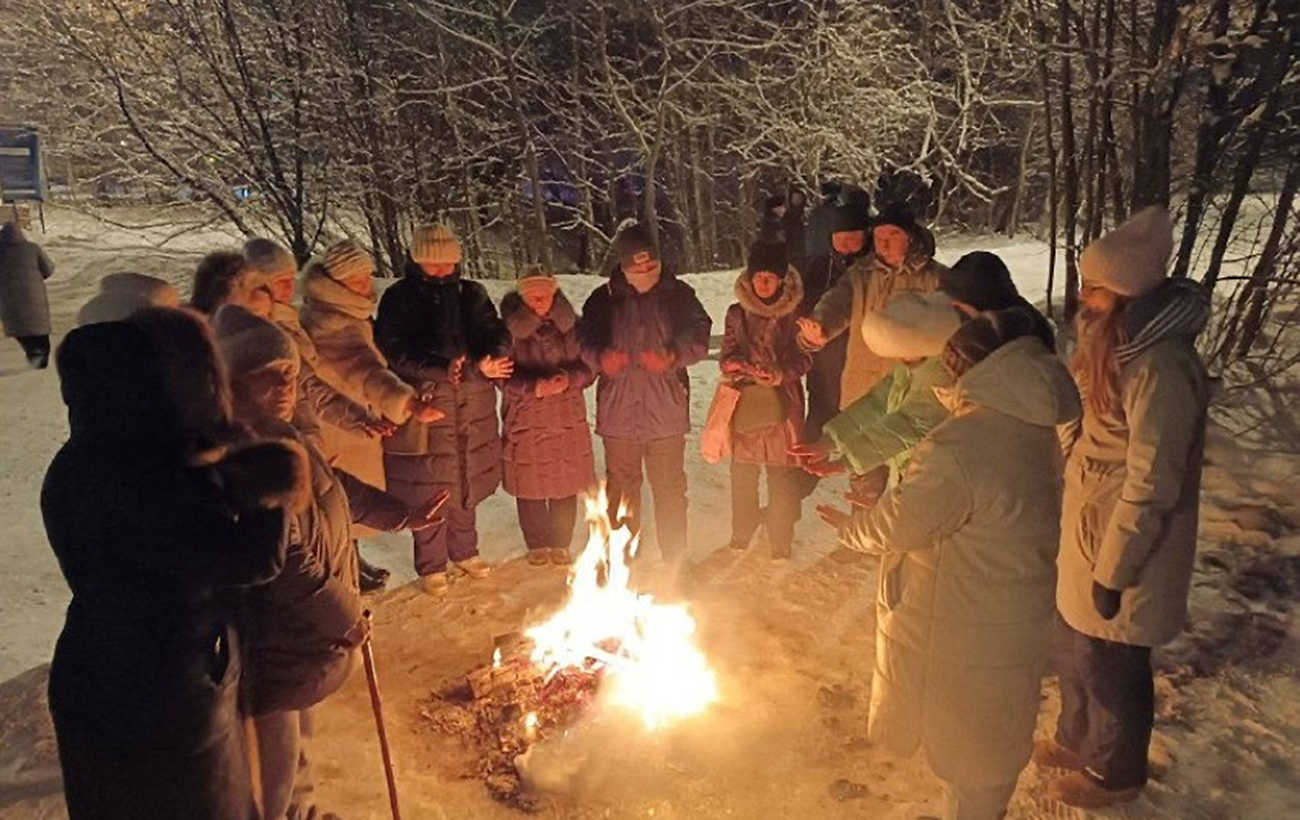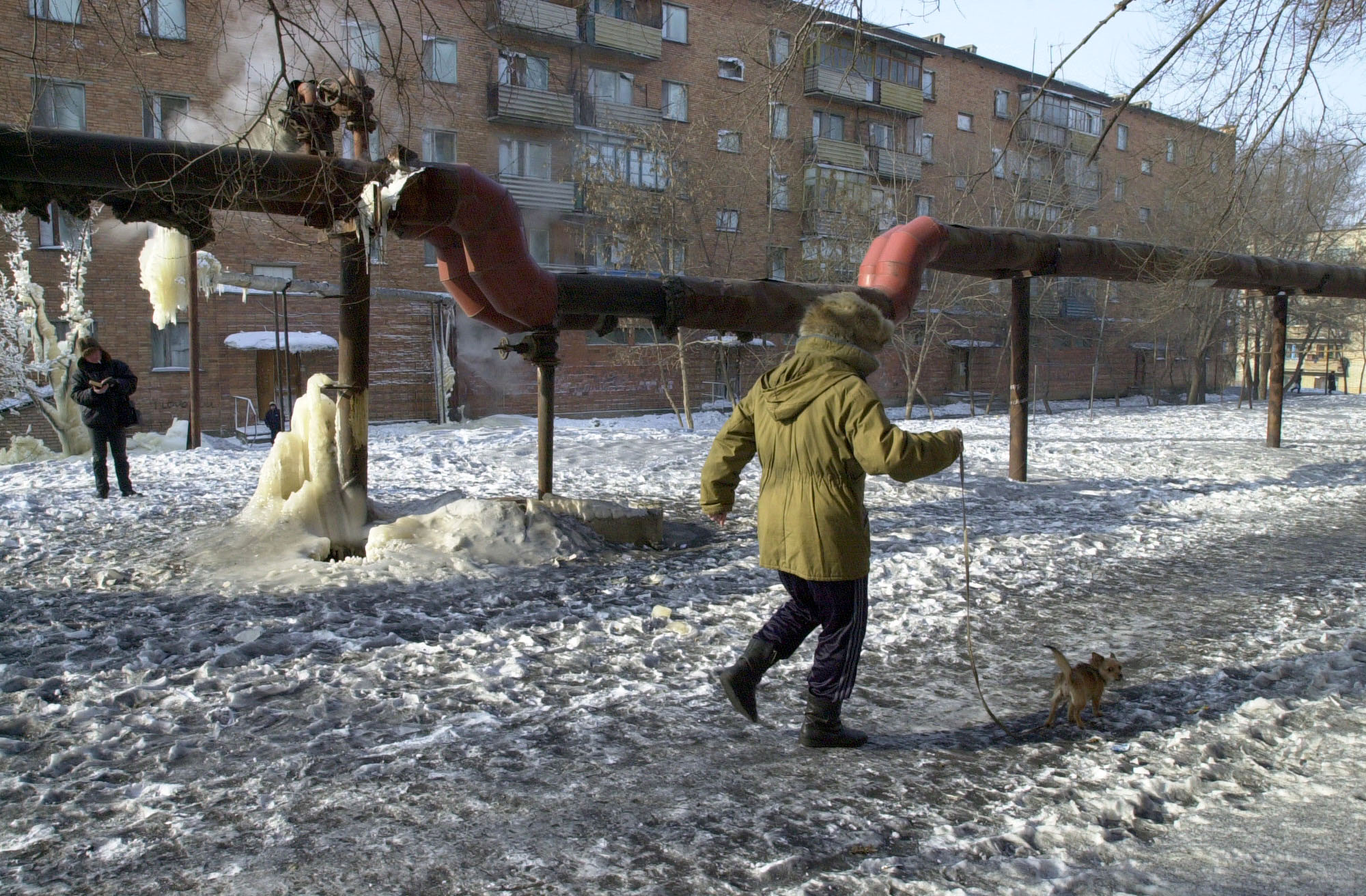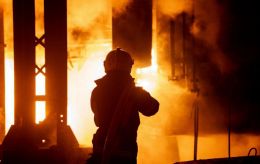Municipal collapse in Russia: Freezing cities and its connection to war in Ukraine
 Municipal collapse in Russia (Russian media)
Municipal collapse in Russia (Russian media)
Russia is currently experiencing a municipal collapse, and this year it has touched central regions for the first time in a long while. Municipal budgets lack funds for repairing heating networks, exacerbating a problem that has taken on a mass scale and remains unresolved due to financial constraints. More details on the repercussions of this situation for the Kremlin can be found in the report by RBC-Ukraine.
In the winter of 2023-24, many Russians found themselves amid a communal breakdown in housing and utilities. Starting from December 1, incidents related to heating and water supply pipe ruptures were reported across the entire territory of the Russian Federation. Within a few weeks, the number of buildings left without water and heating exceeded all figures from the previous year, becoming one of the largest crises in recent decades.
Notably, for the first time in a long while, the collapse affected not only the regions but also central Russia, where hundreds of buildings were left without heating during freezing temperatures. Despite this, the Russian government has no plans to increase spending on housing and utilities. On the contrary, they are cutting them in half. Meanwhile, the military budget for the ongoing aggressive war against Ukraine is on the rise.
Federal scale
Accidents in Russian heating networks occurred almost immediately after the onset of winter. The largest incident took place in Podolsk near Moscow, where almost 20,000 people were left without heating. Local media regularly report on ruptures that constantly occur in the Moscow region. In one city in the Moscow suburbs, residents gathered outside on January 6 to warm themselves by a bonfire.
In Lipetsk, 10,000 people were left without heat, in Novosibirsk – 14,000, with slush flowing through the streets. Similar situations occurred in Saratov and Volgograd. In the Leningrad region, a 60-year-old military officer froze to death in his own home. Since the beginning of winter, 94 incidents have been recorded throughout Russia in more than 40 regions, exceeding the total from the previous year, where only 89 incidents were reported. Pipes burst in apartment buildings, heating networks fail, and repairs are only addressing specific points without resolving the overall situation. According to the local authorities' estimates, the wear and tear of communal networks exceeded 70% in 2022.
Previous years also witnessed accidents, mainly in remote regions of Russia, where minus 50 degrees Celsius in winter is a common occurrence and people heat their homes at their own expense. However, this year, the collapse in the housing and utilities system has affected central Russia. This indicates that the issues have become widespread, coupled with a lack of understanding on the part of local authorities about how to deal with the situation, notes Sviatoslav Pavliuk, the executive director of the Energy-efficient Cities of Ukraine association.

Residents of one of the towns near Moscow came out to warm up by the fire (photo: Russian Telegram channels)
"It is evident that heating network ruptures are part of typical problems, and the municipal services should be ready for such issues. It's not something extraordinary. What is exceptional is that it is happening on a massive scale in different cities, indicating that the state of municipal self-government and attention to local networks is low. I understand that ruptures can happen, but such a widespread phenomenon suggests that local self-government and municipal companies are not engaged in what they should be," commented Pavliuk to RBC-Ukraine.
As the accidents became more extensive, Russians took to the streets in protest, but they were quickly suppressed. The main focus in attempting to address the situation is undoubtedly on the central regions. However, instead of allocating funds for the comprehensive repair of heating networks, cable networks, and substations, local authorities initiate criminal cases, engage in negotiations, and set deadlines that are not met, according to political analyst Ivan Preobrazhenskyi.
"The main thing is to prevent any protests. Not to carry out repairs. Somewhere they try to do something, but it is much more important to demonstrate the simulation of vigorous action. Therefore, criminal cases are initiated, and the property of companies that owned boiler houses is seized," said Preobrazhenskyi in his commentary to RBC-Ukraine.
The Russian government has employed familiar tools for a police state, opening cases and arresting several officials in the Moscow region, accusing them of boiler room accidents. It is worth mentioning that boiler houses are often part of military facilities. For example, in one city in the Moscow region, they are located on the territory of an ammunition plant, where, according to the authorities, it is not easy to access and repair pipes.
_1.jpg)
Cold in Russia (photo: Russian media)
"In Russia, just like in the Soviet economy, some boiler houses remain closed, they are subordinated, workers cannot enter there, and even repairs cannot be conducted without permission. And such problems persist in various former closed cities, and cities with large military production," notes Preobrazhenskyi.
Considering the widespread nature of accidents and their location, including in the center of Russia, it can be assumed that the protests currently being suppressed may become more extensive and global. Dissatisfaction with the local authorities and constant cold in apartments will force people to take to the streets.
However, experts believe that expecting popular uprisings in Russia is not advisable. Firstly, a spontaneous rally in a totalitarian state is practically impossible unless millions take to the streets and outnumber the security forces. Secondly, Kremlin political technologists have long devised a scheme to suppress protests without resorting to the use of brute force by riot police.
"Negotiators come to them (protesters) from one side, and on the other side, activists dealing with these issues at the regional and federal levels are being introduced into their ranks. These activists help them negotiate with the authorities, and accordingly, people feel that a full-fledged negotiation process is underway. They expect to be sent away, but an official comes to talk to them instead," says Preobrazhenskyi.
The protesters then receive some kind of a solution and are asked for patience. If there are protesters who do not want to wait, they will be dealt with by another scheme frequently used in Russia. "If they continue to get upset, then they are declared accomplices of Ukraine, foreign agents, NATO spies, spreaders of LGBT values. Anyone," adds Preobrazhensky.
Military-political expert of the Information Resistance group, Oleksandr Kovalenko, also suggests not counting on popular uprisings in Russia. In his opinion, there is little that can still outrage Russians.
"They have already buried 'liberators' in over 300 thousand graves, and what's the result? They put stickers on cars saying 'I'm tired.' No movement could not just go out on the streets and say, 'We are freezing here, but we will still vote for you,' but do more. They went out to burn parquet on the street instead of burning the Kremlin. So there'll be no change," the expert is confident.
While sociologists are disappointed with the overall immaturity of the Russian population, unable to defend its interests, economists with restrained optimism emphasize one important factor - accidents in the housing and communal services (HCS) sector show that regional budgets are being depleted due to the war. And this can continue to affect Russia's ability to financially support its expansionist ambitions.
Chain is no stronger than its weakest link
According to the calculations of Russian economists, 20 trillion rubles is needed to carry out a comprehensive repair of all heating networks in Russia. Russia, however, spends 300 billion. Moreover, communal expenses continue to decrease. According to Preobrazhenskyi, accidents in the HCS sector are related to the war initiated by Russia, but indirectly.
"Regional budgets have no money because, for the second year in a row, they are being forced into a huge amount of expenses for the war. The formation of these pseudo-volunteer battalions of mercenaries, humanitarian aid to the occupied territories, assistance to Russian soldiers, and so on. All this falls on regional budgets and the federal budget, which then partially offsets the lack of funds to the regions in the form of a subsidy, but only for those who have good connections. This is how it is related to the war," says Preobrazhenskyi.
Two years of unprecedented Western sanctions have not broken the Russian economy as expected. However, the "military tracks" it has embarked on require significant funds. Today, Russia artificially restrains the growth of the ruble exchange rate with the help of the National Welfare Fund. The sale of oil does not bring the same income as before, and overall, experts assess the current Russian economy as extensive.

One of the Russian courtyards where pipes burst (photo: Getty Images)
The municipal collapse is just one part of this process. According to opposition economists, a much more representative issue is the sharp increase in egg prices that occurred at the end of 2023, prompting Russian President Vladimir Putin to apologize. Ivan Preobrazhenskyi refers to this story as a "litmus test."
"On one hand, there is a shortage of labor, as everyone was sent to the front. On the other hand, there is a lack of educated people because they think that producing chicken eggs is some lady in an apron walking in the yard feeding chickens. They do not understand what they need and lack, like seed material, feed, and light bulbs in incubators, which are also not produced in Russia. And that's where it breaks," commented the expert.
Despite the central government's recommendations, egg prices have not stabilized in the regions. This indicates dissatisfaction among the middle businesses and a reluctance to comply with Kremlin orders at their own expense.
Another indicator is the issue with airplanes, which is acknowledged even by non-opposition figures. In late 2023, the state agency Rosaviatsia (Russian aviation - ed.) announced that during the fall in Russia, as many airplanes broke down as in the entire previous year. Following this statement, the agency's head, Alexander Neradko, was abruptly dismissed.
As of now, Russia can sustain its economy by literally managing and solving emerging problems manually. However, this does not mean it will always be the case, as any reserve of power, no matter how great, will eventually run out. The current situation in Russia is referred to as a crossroads – either the military economy will support the civilian one, as was the case in the United States or Germany during World War II, or the other way around. According to economists, the second model is likely to collapse within a few years.
The collapse in the housing and communal services sector can be seen as one of the many intermediate results of how Russia is funding its war. Considering that expenditures on communal services continue to decrease, Russians will have to be prepared for further deterioration of their already precarious situation, as stated by economist Igor Lipsits.
"I think it's time for Russians to prepare for very unpleasant living conditions, to think about how to install stoves, set up toilets, and carry water from the outside in buckets, as they have been doing in many Russian cities for quite some time. I understand that this may sound exaggerated, but that's what will happen. North Korea is living like that, and Russia is moving in that direction," said Lipsits.
Giving precise forecasts is challenging, as there could be many scenarios. There are examples worldwide of countries living on "military tracks" for decades and even managing to develop a military-industrial complex. In any case, the next year will be indicative for both Russia and the civilized world.

